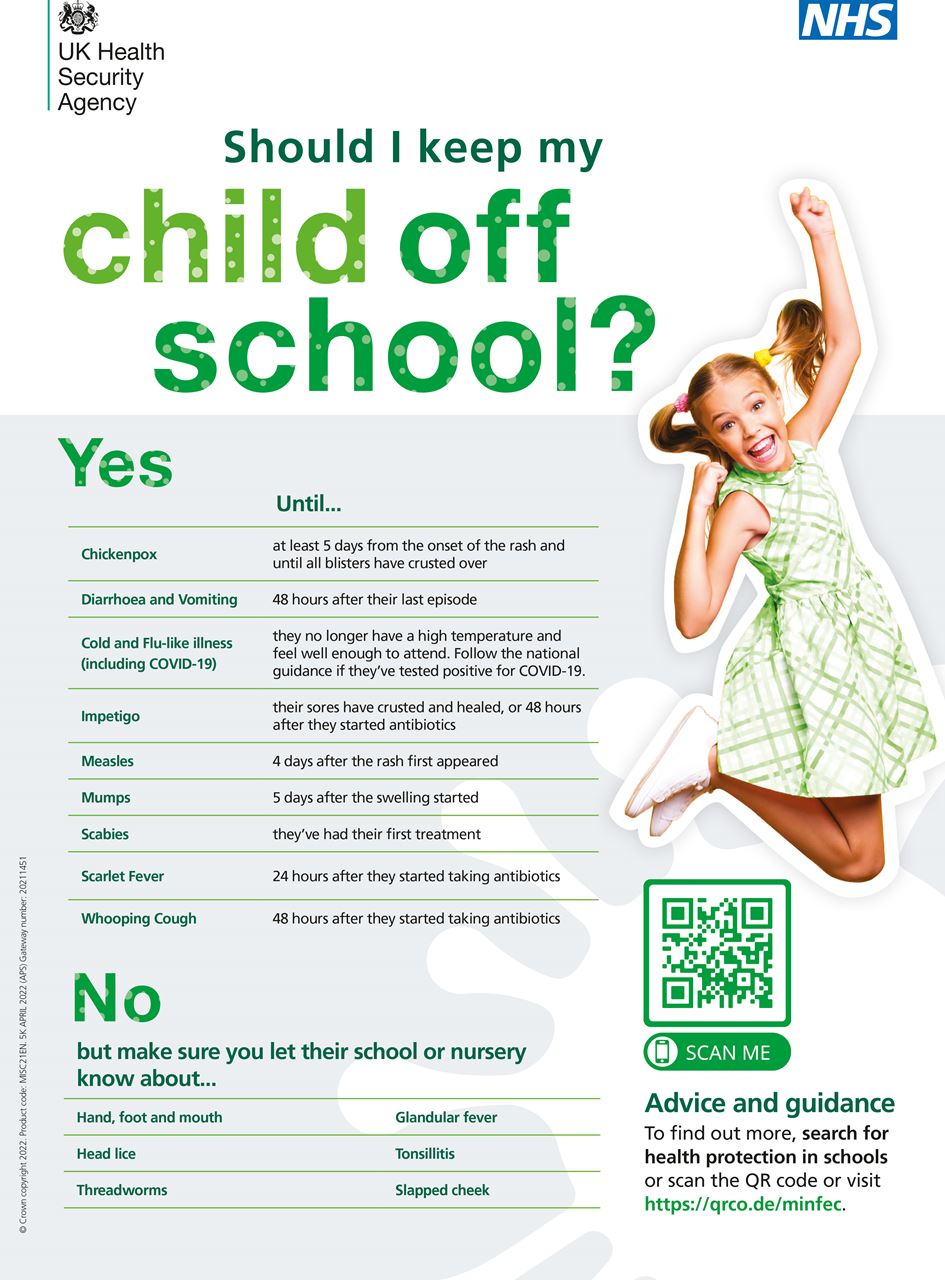Children's Health - General Advice
When Should I Worry?
Having an ill child can be a very scary experience for parents. If you understand more about the illness it can help you to feel more in control. This booklet is for parents (and older children) and deals with common infections in children who are normally healthy.
Fevers
Most symptoms of a fever in young children can be managed at home with infant paracetamol. If the fever is very high, they may have an infection that needs treating with antibiotics. The NHS has guidance on fever here.
Head Lice
Head lice are insects that live on the scalp and neck. They may make your head feel itchy. Although head lice may be embarrassing and sometimes uncomfortable, they don't usually cause illness. However, they won't clear up on their own and you need to treat them promptly. NHS Inform guidance is here.
Nosebleeds
Nosebleeds (also known as epistaxis) are fairly common, especially in children, and can generally be easily treated. NHS Inform advice and guidance is here.
Chickenpox
Chickenpox is a mild and common childhood illness that most children catch at some point. It causes a rash of red, itchy spots that turn into fluid-filled blisters. They then crust over to form scabs, which eventually drop off. There is no treatment required apart from keeping the child comfortable and there is NHS inform guidance which can be found here. If you are going to use any medication then paracetamol is advised rather than ibuprofen in cases of chickenpox.
Earache
Earache is a common problem, particularly in children. It can be worrying, but it's usually only caused by a minor infection and will often get better in a few days without treatment. Antibiotics may be indicated in children under 2 or if there is discharge coming out of the ear. Further guidance can be found on this link.
Eczema
Eczema is common in children and often improves with age. The mainstays of treatment are regular emollients and intermittent topical steroids if required to reduce risk of damage to the skin from scratching. There is good information on the NHS Inform website.

Page created: 26 January 2023